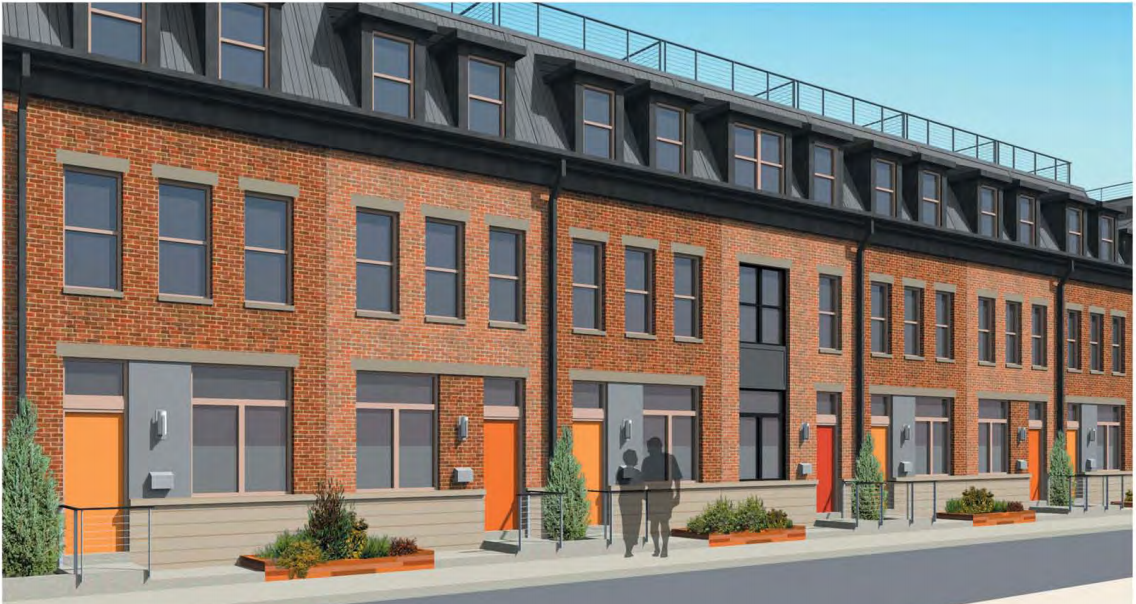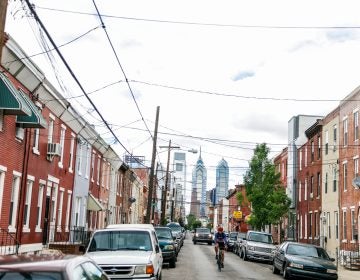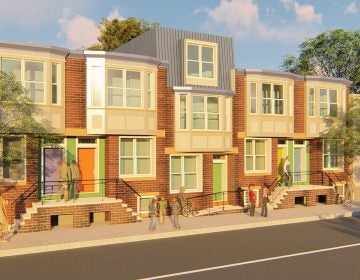Planning Commission called racist after voting to support Point Breeze housing development

Two members of Concerned Citizens of Point Breeze, a small community organization that has fought for years to stop high-end housing developments and residential rezonings in the South Philadelphia neighborhood, accused the City Planning Commission of racism after the Commission voted on Tuesday to support zoning variances for a housing development at 20th and Wharton streets.
The vote concerned a proposal from developer Howard Silverman to build 46 single-family homes on a previously industrial vacant lot at 2012-2020 Wharton Street. The lot is about an acre in size and sits a few blocks from Point Breeze Avenue, the neighborhood’s primary commercial corridor. It is still zoned for industrial and commercial use, though the South District Plan, completed last summer, recommends that the site be rezoned for residential development.
The proposal has been in the works for several years. In May of 2014, the Planning Commission punted on the issue and encouraged the zoning board to hold off making a decision on the project until the developers could have more conversations with neighborhood residents. The zoning board has yet to weigh in on the project, and a hearing is scheduled for late February.
During the meeting on Tuesday, the Planning Commission initially seemed ready to table the issue after hearing that Councilman Kenyatta Johnson’s office was hoping to organize more meetings between the developers and community residents. But Tiffany Green and Theresa McCormick, of Concerned Citizens of Point Breeze, said that the fundamental issues weren’t negotiable. They want the site to be built out with some sort of job-creating commercial use rather than with houses.
The same issues were discussed at a neighborhood zoning meeting in Point Breeze last Thursday. Some community members asked why the site couldn’t be developed with a supermarket. Howard Silverman said there weren’t any supermarkets that would locate there. The only way to get more commercial uses in the neighborhood, he said, is to increase the residential density and encourage the redevelopment of Point Breeze Avenue.
Other community members at last week’s meeting wanted to know how much Silverman is planning to sell the houses for. Silverman wouldn’t say. After the Planning Commission meeting on Thursday, Silverman told PlanPhilly he couldn’t estimate what the houses would cost because he doesn’t know when they’ll be built. What if they were built and sold today? Silverman said he hadn’t done the math yet.
Tiffany Green said on Thursday that the onslaught of market-rate residential development in Point Breeze is “disrespectful” to the community.
“I don’t believe that mixed-income works, because the haves and the have-nots—one will win out,” Green told PlanPhilly.
Last Thursday night’s meeting was hosted by the Point Breeze Community Development Coalition, a Registered Community Organization (RCO). The Coalition held a vote on the 2012 Wharton proposal but didn’t count the votes that night. Steve Cobb, a lawyer in Councilman Johnson’s office, said he believed that opponents of the project outnumbered supporters in the vote tally, but wasn’t sure what the final count was. Representatives of the Coalition weren’t available to talk on Tuesday afternoon.
On Tuesday, Planning Commissioner Pat Eiding made a motion to table the issue until the next Commission meeting, which is scheduled for the week before the zoning board hearing. That would give Johnson’s office time to hold more discussions between the developers and community residents.
Green and Silverman both suggested it wouldn’t be helpful to have more meetings to talk about the finer points of the plan: Green’s group has no appetite for residential development at 2012 Wharton, and Silverman’s group has no appetite for anything else.
Planning Commissioner Beth Miller then said that the Commission could be prepared to weigh in on that issue. If it was a question of whether the Planning Commission should support residential zoning at the site, in accordance with the South District Plan, Miller said that it should. She moved to recommend support for the zoning variances, and the motion carried unanimously.*
Green and McCormick stood up and shouted that both the development proposal and the Planning Commission were motivated by racism. Green noted that the Planning Commission has only one black member.
“This is preferential treatment and that’s discriminatory,” Green said. “ … Why do we have to conform to [Silverman’s plan]? Because he’s white? I don’t think so.”
The Planning Commission attempted to move on with its agenda while Green and McCormick persisted, saying they planned to get the NAACP and civil-rights activist Reverend Al Sharpton involved. They continued to protest as they slowly made their way out of the hearing room.
Howard Silverman stayed behind for about 15 minutes and then left.
After the meeting, Steve Cobb said that the 2012 Wharton proposal started to take shape around the same time that the South District Plan was being developed. The District Plan takes a “10,000-foot view,” Cobb said, and Johnson’s office typically holds meetings with neighborhood groups before introducing any site-specific zoning legislation. Other community members were not opposed to residential development outright and wanted a chance to discuss some details of the plan with the developers, he said.
“[Green and McCormick] were not speaking on behalf of the designated RCO or anyone other than themselves,” Cobb said.
A hearing on the project is scheduled at the Zoning Board of Adjustment on Wednesday, February 24th, at 1 p.m., on the 18th floor of 1515 Arch.
*Disclosure: Beth Miller sits on PlanPhilly’s Advisory Board.
WHYY is your source for fact-based, in-depth journalism and information. As a nonprofit organization, we rely on financial support from readers like you. Please give today.





